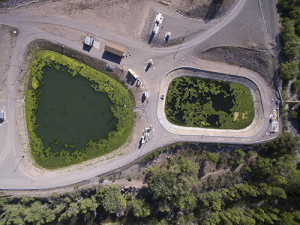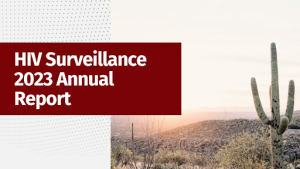In 2020, during the height of the pandemic, one key challenge was getting an accurate picture of COVID-19 infection rates in communities, especially for people who had COVID-19 but weren’t experiencing symptoms. The Centers for Disease Control and Prevention...
 In 2020, during the height of the pandemic, one key challenge was getting an accurate picture of COVID-19 infection rates in communities, especially for people who had COVID-19 but weren’t experiencing symptoms.
In 2020, during the height of the pandemic, one key challenge was getting an accurate picture of COVID-19 infection rates in communities, especially for people who had COVID-19 but weren’t experiencing symptoms.
The Centers for Disease Control and Prevention (CDC) launched the National Wastewater Surveillance System (NWSS) to get better visibility into infection rates and support rapid efforts to provide treatment and stop further spread of COVID-19.
Shortly after, in early 2021, the Arizona Department of Health Services (ADHS) received funding to begin Arizona’s own statewide wastewater testing program to better detect illness in local communities and protect the people of Arizona.
Since then, the ADHS Public Health Laboratory has worked with Arizona State University and the University of Arizona laboratories to test more than 8,578 wastewater samples for COVID-19 at sites in Maricopa, Yuma, Coconino, Pima, La Paz, and Mohave counties.
When a high rate of infection is detected through wastewater testing, ADHS notifies the county so they can take appropriate mitigation steps. ADHS also increases public health messaging when wastewater viral levels are high or increasing, to alert and inform the public so that they can take measures to protect themselves.
During the pandemic, counties hosted vaccination clinics, community testing events, and other mitigation initiatives to help combat high levels of community COVID-19 infection. While these efforts are not as frequent because vaccination rates have increased and infection rates have decreased, these methods can be redeployed in the event of an emergency.
ADHS is currently working on building our capacity to identify different strains through sequencing of the COVID-19 virus in wastewater samples, which will aid in the early detection of new COVID-19 variants. Sequencing will help to catch new variants arriving in communities before they’re able to take hold, as well as better inform vaccine development.
ADHS also anticipates expanding testing to new pathogens as resources become available including respiratory, gastrointestinal, and antimicrobial-resistant pathogens such as Influenza, RSV, Mpox, and Candida auris. This testing can aid in prevention efforts, such as using wastewater to detect when Influenza and RSV seasons are beginning and encouraging the public to take protective action.
The wastewater testing section of our website will be updated as new pathogens are added for testing. The ADHS wastewater team is also in the process of developing a public-facing wastewater dashboard, which will be available early next year. The dashboard will feature an interactive map along with pathogen trends to inform the public on when to take preventative measures that could help avoid exposure and illness.
Testing for pathogens in wastewater provides public health with a solid tool for monitoring trends that will guide interventions to slow and stop the spread of infectious diseases. For Arizona, wastewater surveillance is an exciting opportunity to improve health outcomes across the state and allows us to predict, prepare for, and initiate more rapid responses to pathogen spread.












